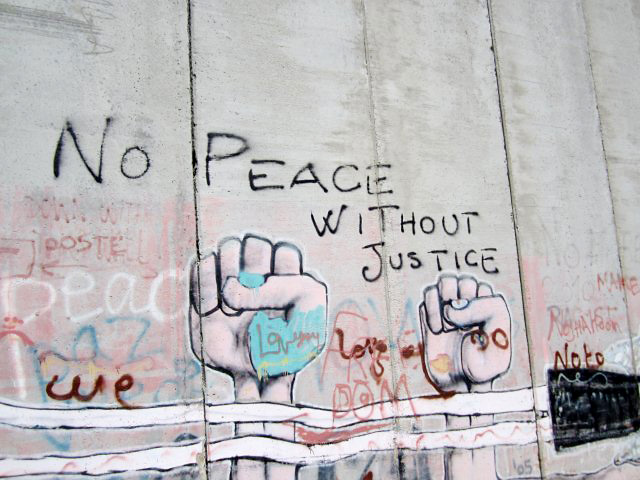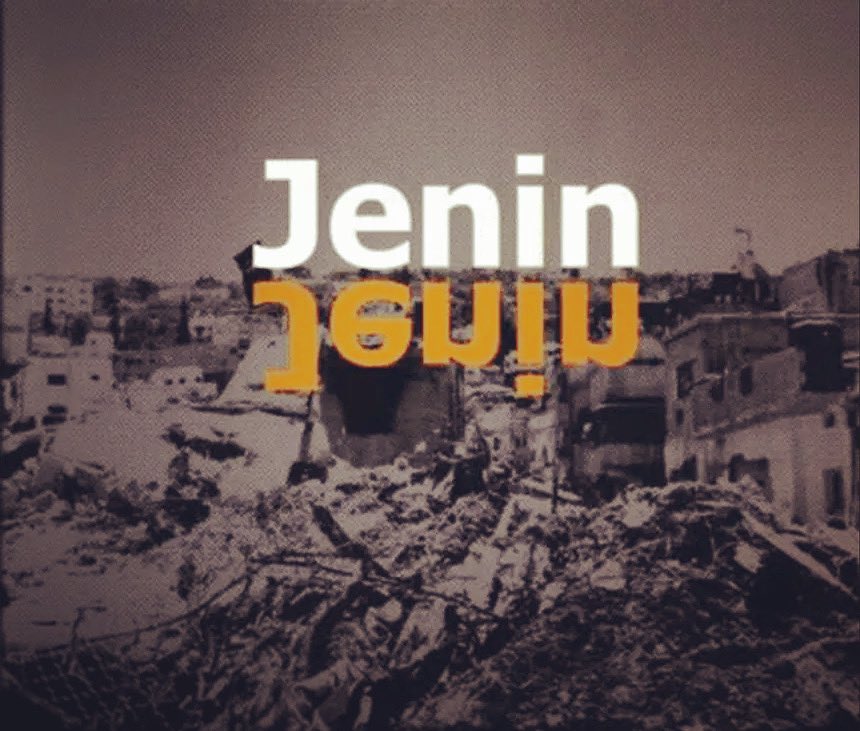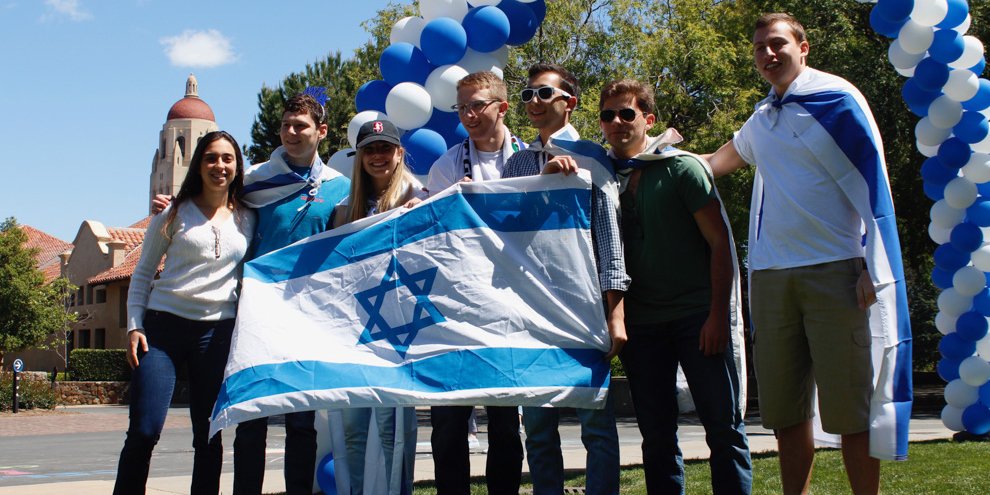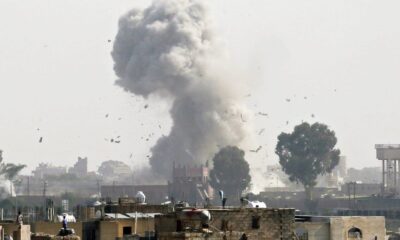Middle East
Why is the World Abandoning Yemen?
Published
4 years agoon
Yemen Humanitarian Crisis
The Republic of Yemen is a country in Western Asia that lies at the Southern end of the Arabian Peninsula. After Saudi Arabia, it is the second-largest Arab sovereign state in the Peninsula and has a population of 28.5 million. Yemen, one of the Arab world’s poorest countries, is facing a deadly Civil war for decades. The republic of Yemen faces major problems like unemployment, and water shortages which are the main cause of conflict in Yemen. Yemen also has the lowest HDI among the Arab states because of severe poverty in highlands, semi-desert areas, and fishing villages. Corruption in all sectors, lack of democracy, and no political involvement of common men in decision-making made the situation worse.
In response to such factors as low standards of living, anti-government protests and army rebellions came into existence. At last, Mr.Hadi was appointed as the president but he had to deal with several problems. This included attacks by Jihadis, a separate movement in the south, and the insurgency from security personnel to Saleh. Saleh was unable to tackle Corruption, unemployment, food insecurity, and lack of good governance. The Houthi movement took advantage of the new president’s weakness. They took control of Saada province and neighboring areas.
The Houthi movement wanted to gain control over the country due to which Mr.Hadi was forced to leave. “The Coalition” was formed by a group of several regional countries that were backed by the United States. The group led by Saudi Arabia went to war against the Houthis Or Ansar Allah. Since then, Yemen has been facing acute humanitarian crises. According to the United Nations, if the war continues, the people of Yemen would suffer from the world’s worst famine.
Should The World leave Yemen to die in Humanitarian Crisis?
Out of 28.5 Million About 80% of the population, 24 million need humanitarian assistance and protection on an urgent basis. This deadly crisis has killed over 7700 civilians by March 2020. In a world where households have been hoarding necessities in the Pandemic, civilians of Yemen have been dying due to poor health.
According to Save the Children, 80,000 thousand children having severe acute malnutrition died from 2015 to 2018. Following a ballistic missile attack, Saudi Arabia 2017 tightened its blockade of Yemen. These steps put Yemenis in more trouble as a stoppage of foodstuff, Medicines, and Fuel. This led to a rapid increase in the prices of foodstuffs and fuel which pushed Yemenis into food and health insecurity. The economy of Yemen and the health care system has collapsed. Infectious diseases such as cholera and diphtheria are rampant and widespread in all areas, with a lack of clean treated drinking water and other basic facilities.
There is no better time than this for the international community to prevent deaths in Yemen due to a lack of necessities. Yemen has seen the worst cholera outbreak since 2017 and the danger of the world’s worst famine hangs above the head. There is a dire need to unblock imports, and ensure the distribution of aid including foodstuff, medicines, and other stuff to prevent the worst outcomes.
Is the world really abandoning Yemen?
Saudi Arabia and the UAE have been fighting to regain control of the areas back from a Houthi-led insurgency. In July 2019, the United Arab Emirates (UAE) a key ally of Saudi Arabia in the war, announced a withdrawal of its forces from Yemen. Saudi Arabia announced a unilateral ceasefire in April this year due to the coronavirus pandemic.
In 2019 at a conference held by the UN a $ 4.2 Bn in aid pledges for Yemen assistance was announced. The announcers have given very little amount in this regard, unfortunately. The health-care system of the country collapses as millions of children face starvation. Pandemic coronavirus on the peak and cholera outbreaks, and warns that UN-backed aid programs may close in weeks due to a shortage in funding.
International pledges at a recent aid conference fell far behind what is immediately needed. The Global Coronavirus outbreak distracted the prominent members of the Yemen war. According to the United Nations, the deaths in Yemen this year from coronavirus would be more than calculated. If the healthcare system is not improved, the number of deaths due to coronavirus would increase the total number of deaths in the last five years.
Considering the current situation, saying that Yemenis are also abandoning Yemen would not be wrong. The priority of most the educated civilians is to flee the country. The only people left in Yemen are those who cannot afford to escape the country. This is the main reason for the drowning economy of Yemen.
Global prospects
According to many, the dispute in Yemen is also because both Saudi Arabia and Iran are bitter rivals. The war in Yemen is the result of the power struggle of both countries. The only concern of the United States is to fight against Houthi. This is why the United Nations is struggling to combat terrorism in Yemen. The US has collaborated with the Yemeni government and its allies. The Houthis, with the back of Iran, have made drone and missile strikes on bordering Saudi Arabia escalating the tension in the region.
Iran and Saudi Arabia are not fighting directly to showcase their power. These two countries are in a proxy war. What happens in the Yemen war with Saudi Arabia can greatly mount regional tensions. Unstable Yemen means more attacks from terrorist groups residing there which is a threat to the western world.
All political players must cooperate in good faith, avoid intense actions, and put the interests of Yemenis first. All Groups should respect international humanitarian law by allowing unhindered access to aid and other essential goods to the famine-hit country.
Also, Check
Featured
In Palestine, no peace before the slate is clean
Published
10 months agoon
October 7, 2023

It seems that peace in Palestine will remain confined to the realm of wishful thinking. For the vast majority of people around the world, the racist apartheid entity known as Israel is probably the most gargantuan crime against humanity ever committed in the history of mankind.
Israel was conceived in sin, misbegotten in evil when it was established nearly 75 years ago, remains completely evil today, and will always be irremediably evil, no matter how many people sing its praises.
The creation of Israel in Palestine may not be the most heinous genocidal act in history. But it is most certainly the biggest and most obscene theft ever. How else can any honest person describe the arrogation of an entire country by the British empire and surrendering it, as a (National home), on a silver platter to another people ( Zionist Jews) on the ground that these people were stateless and persecuted, especially following the tragic events of the World War II.
Indelible calamity for Palestinians
Indeed, the very creation of Israel and its malignant growth into a powerful evil entity has inflicted a huge indelible calamity to every Palestinian family.
Yes, thanks to Zionism’s triumph, thanks to overwhelming, unlimited and sustained backing by racist, anti-Islam Western powers such as UK and US, every Palestinian family had its share of the still ongoing agony, immense suffering and misery resulting from the establishment of the evil entity, which is nothing less than a protracted, unrelenting and unceasing crime against humanity.
It is probably impossible to find a single Palestinian who has escaped the impact of the Zionist Jewish crimes, still, continues unabated.
Israel: When will the Jews say Mea Culpa?
This writer’s family, for example, was forced to dwell in a cave for 20 years, following the near extermination of my father’s family in 1953. In that fateful year, Jewish terrorists massacred his three paternal uncles, Hussein, Mahmoud and Yousef not far from the village of, al-Burj, about 30 km southwest of the town of Hebron.
The three, along with other relatives, were totally innocent shepherds, grazing their folks of sheep near the armistice line. In addition to murdering my family, the Zionist murderers stole hundreds of sheep upon which our family depended on for living.
Read Also: Expect a Srebrenica-like massacre anytime by Jewish Settlers in the West Bank
Interestingly, up to this day, Israel, the so-called only democracy in the Middle East, has not said “Mea Culpa“! let alone paid compensations for their crimes When will the Zionist Jews say a simple sorry for their unwept victims? Perhaps when kosher pigs fly!
Yes, every single Palestinian has a story to tell about what happened to his or her immediate family, relatives, neighbours and fellow villagers.
The Zionists, notoriously selfish and narcissistic, calculated that old Palestinians who experienced the holocaust-like Nakba first-hand ( the brutal, violent extirpation of an entire people from its ancestral homeland does constitute a form of genocide), would die and the young would forget.
However, the Zionist calculations proved utterly faulty as the cause has been kept alive and living, strongly and firmly, in the hearts and minds of millions of people around the world, including in Palestine itself where close to eight million Palestinians continue to live as a thorn in the Zionists’ side despite all their nefarious designs, plots and exploits to consign our just cause to oblivion.
There are several reasons for this exemplary resilience and steadfastness on the part of the Palestinian people, including the following:
1-The colossal Nakba, was by no means a one-time event lasting for a few weeks or a few months, followed by peace or an end of hostility. The Palestinians actually never encountered circumstances or conditions conducive to making them or their descendants forget or overcome their pains. Indeed, ever since 1948, the collective Palestinian experience has been a sequence of atrocities, pogroms, repressive measures, mass internment and imprisonment, home -demolitions, land-grabbing, sporadic massacres, and similar acts of persecution and oppression. This would draw a conclusion that peace in Palestine belongs to the realm of fantasy.
The main purpose of these evil measures has always been to force the Palestinians, or significant numbers of them, to leave their homeland for good. Indeed, in many instances, the Zionist authorities offered attractive sums of money to “encourage” Palestinians to emigrate to countries such as Australia and Canada. However, very few Palestinians would swallow the Zionist bait.
The unrelenting suffering and the protracted oppression and savagery kept alight the torch of resistance even to this day as most Palestinians came to realize that they were facing two main alternatives: continued resistance even at a high price, or going into oblivion and repeating the experiment of the “American Indians” of the Middle East.
2-The second reason which enabled the Palestinians to keep their struggle alive is their strong Islamic faith. Islam encourages its followers to resist oppression and not succumb or give in to oppressors. True, Palestinian nationalism played and continues to play an important role in sustaining the resistance. However, it is amply clear that Islam is more able to provide an inexhaustible source of motivations for the increasingly religious showdown with Israel. More to the point, Palestinians feel they have a paramount religious duty to protect, defend, and liberate al-Aqsa Mosque from the claws of Zionism. Indeed, most Palestinians realize there can be no Palestine without Jerusalem and no Jerusalem without the Aqsa Mosque. Hence, their resolve to sacrifice body and soul for the liberation of Islam’s third holiest sanctuary.
No Peace without Justice, but Justice is more than impossible
Since there can be no lasting peace in Palestine without true justice that leaves the slate thoroughly clean, it would be safe to argue that reaching a genuine peace between Muslims and Zionist Jews would be as unlikely as Satan the devil entering the Garden of Eden in the company of prophets, saints, martyrs and righteous people on the Day of Judgment.
But since Satan will go to hell rather than paradise, peace in Palestine will remain confined to the realm of wishful thinking.
And even if Zionist Jews were to reach the conclusion that enough was enough, they still would have to agree to a system of redress for the egregious injustices inflicted on their victims from the very inception of the gargantuan crime against humanity.
For justice, even a semblance of justice to materialize, the Jews of the world would have to pay the Palestinians adequate and prompt reparations for the purpose of promoting justice and redressing the horrible and still ongoing crimes against the victims and their descendants up to the 10th generation. I cannot determine the exact amount of reparations and indemnification which Jews would have to pay for the victims. But an initial amount of 30-50 trillion dollars would probably suffice for a final rapprochement. Am I undergoing day-dreaming. Definitely. That is why even invoking the possibility of a real durable peace between Palestine and Israel belongs to the realm of fantasy and wishful thinking. (end)
Featured
Palestinians’ surrender is unlikely in Jenin refugee camp.
Published
1 year agoon
July 4, 2023

A massive operation of murder and terror at the Jenin refugee camp in the northern West Bank has been carried out by the Israeli army immediately after the Eid Al-Adha holiday, killing and maiming scores of Palestinians including dozens of innocent civilians.
The massive operation wreaked havoc and caused huge destruction to homes and property as well as to the camp’s infrastructures.
The latest massive operation in Jenin refugee camp began shortly before dawn on 3 July, when as many as a thousand crack soldiers and around 150 armoured vehicles stormed the unprotected civilian camp, allegedly to eliminate Palestinian resistance fighters hiding in the area. Israel claims the fighters occasionally attack the occupation army patrols and paramilitary Jewish settlers, notorious for their often murderous attacks on Palestinian civilians throughout the West Bank.
Read Also: Huwara rampage: a prova for a possible Israeli Holocaust.
The settlers, emboldened by the establishment in Israel six months ago, of the most fascist government ever in Israel’s history, have escalated their organized army-backed terror against Palestinians.
The massive operation in Jenin refugee camp, which is continuing for the second consecutive day as this report is being compiled, has been described as the biggest since 2002.
It was preceded with bombing from the air of homes and other buildings by Apache helicopters and armed drones, causing the death of several Palestinians.
The few Palestinian resistant fighters in Jenin refugee camp, lightly and poorly armed, sought to prevent the invading forces from reaching the centre of the camp. They succeeded for a time, despite the massive operation of the occupation army. As of now, at least 10 Palestinians were martyred, and as many as 100 other Palestinians were injured, some quite seriously.
The UN says it is ‘alarmed’ at Israel's largest assault in decades in the occupied West Bank that has killed at least 10 Palestinians in Jenin and one in Ramallah ⤵️ pic.twitter.com/VaZBQu0qwF
— Al Jazeera English (@AJEnglish) July 4, 2023
Israeli sources said one Israeli soldier was Injured. However, it is widely believed that a number of soldiers were either killed or injured as apparently wounded soldiers were seen on stretches being rushed to an awaiting helicopter which flew them to hospitals.
The Israeli army reportedly fired grenades at the main mosque at Jenin refugee camp, claiming that resistance fighters barricaded themselves inside the holy place. The army had threatened to destroy the mosque if the fighters didn’t surrender.
This is not a video game, this is Jenin today's morning!
— Sarah Hassan (@Sarah_Hassan94) July 4, 2023
filmed by the BBC’s Jimmy Michael pic.twitter.com/s328t0QSh5
Massive bulldozers taking part in the latest operation caused wanton destruction to the civilian infrastructure, demolishing civilian homes, shops, and businesses.
This is JENIN, not Ukraine. Does anyone care? pic.twitter.com/BRmw2hLdqu
— Palestine Culture (@PalestineCultu1) July 3, 2023
The invading force prevented ambulances and medical teams from reaching the wounded. According to eyewitnesses, some wounded people were left bleeding to death.
Goal: Extirping any realistic hope for Palestinian statehood
The declared purpose of the latest massive operation in Jenin refugee camp is the elimination of all vestiges of active resistance to the Jewish occupation and apartheid.
However, an Israeli lawmaker affiliated with the ruling Likud party was quoted as saying that the ultimate strategic goal behind the latest massive operation in Jenin refugee camp was to “irreversibly extirpate and eradicate, once and for all, any remaining realistic hope for Palestinian statehood.”
In other words, Israel is hell-bent on imposing by force unconditional capitulation of the Palestinians.
In order to reach this ultimate goal, Israel must coerce the Palestinians to abandon, once and for all, any dreams or ambitions for freedom from the wicked tentacles of the hateful Jewish Octopus. Hence, the latest bloody massive operation in Jenin.
Palestinian surrender is highly unlikely in Jenin refugee camp.
It is implausible that the Zionist entity will achieve such a genocidal goal, since pushing the Palestinian people to the corner would cause massive tribulations throughout the Arab world, and even the wider Muslim world, given the paramount status of the Aqsa Mosque in the hearts of Muslims.
Besides, the elimination of all realistic prospects for the establishment of a sovereign and territorially-contiguous Palestinian state, a Zionist goal that has more or less been achieved, will, almost certainly, prompt Palestinians to demand equal citizenship rights in a bi-national unitary state extending from the River Jordan to the Mediterranean.
Hamas appeals to Muslims: Don’t normalize with the murderers of our children
In the meanwhile, the Palestinian Islamic group, Hamas, has appealed to all Muslims to immediately stop all forms of normalization with the enemy.
“We appeal to all Arab and Muslim states to immediately end relations with the Zionist regime,” said Ahmed Ayyoub, a spokesman for the group in the Jerusalem area.
He added: your normalization with this Zio-Nazi entity is killing our children and tormenting our people.”
Saleh Aruri, deputy-head of Hamas, said during an interview with Aljazeera on 3 July that normalization with Israel was immensely harming the Palestinian cause.
Israel, he said, is exploiting her normalized relations with a number of Arab dictatorships to encircle the Palestinians and try to liquidate the Palestinian national cause.
The United States is openly colluding with the Talmudic fascist Israeli regime to expand the so-called Abraham Accords by including some additional Arab regimes such as Saudi Arabia.
The Accords are mainly designed to isolate the Palestinian cause by neutralizing Arab and Muslim support for the Palestinian people.
So far, three Arab regimes have gone too far in their relations with the very entity that desecrates the Third most important Islamic sanctuary, namely al-Masjidul Aqsa. These states are The United Arab Emirates which has established a quasi-alliance with Israel, the little Sheikhdom of Bahrain and Morocco.
The three despotic regimes seem to have turned their backs. almost completely to the Palestinian cause and people.


Israel, the misbegotten Zionist entity, on Wednesday, May 5 celebrated the 74th anniversary of its birthday, an allusion to the usurpation by brutal military force of the Arab-Muslim land of Palestine.
In the process, Zionist gangs, armed and funded by wealthy Jews and colonialist Western powers, such as the UK, carried out a well-devised terrorist campaign of indiscriminate murder and violence against the virtually-unarmed and defenseless Palestinian community, during which dozens of hideous massacres, like Dir Yasin, were perpetrated by Zionist gangs, like the Hagana, Irgun, Stern, and others.
Also Read: The most brutal massacres of the “Zionist gangs” in Palestine in 1948
The grisly atrocities forced the vast majority of Palestine’s population at that time, in 1948, to flee their villages lest they face the same fate that the people of Dir Yasin, Tantura, Dawaymeh, and many other hamlets and villages had just faced.
The Deir Yassin massacre took place on April 9, 1948, when 130 Jewish terrorists from the paramilitary terror groups of Irgun and Lehi stormed Dir Yasin near Jerusalem and murdered 107 Palestinian civilians. Other sources, like New York Times, put the number of victims at 200.
Also Read: Israel having free season on Palestinian civilians including Children and Journalists
In his Memoirs, the Rvolt, Menachem Begin, the head of the Irgun terror group, who eventually became Israel’s Prime minister, described the Dir Yasin massacre as a real miracle because it cast terror in the hearts of the Palestinian populace, prompting them to leave. Even before Dir Yasin, Begin was branded by the British government as “leader of the notorious terrorist organization and banned from entering the UK.”
Since Dir Yasin 74 years ago, Zionist massacres of Palestinians have never really stopped as successive Zionist governments retained and maintained the original Zionist strategy toward the people of Palestine. This genocidal strategy was aimed at achieving three main goals: Expulsion of the bulk of Palestinians. (There are 7 million Palestinian refugees today), enslaving Palestinians as as “water carriers and wood hewers,” (apartheid), or outright physical extermination. This is not propaganda or media hypes. This is the un-official but authentic ideology of the ruling Zionist establishment, even today.
Also Read: Religious Fascism in India & Israel: Tweedledum and Tweedledee
In 1967, Israel launched the 6-days war, during which it seized the rest of mandatory Palestine, namely the West Bank which was under the Jordanian rule, and the Gaza Strip, under the Egyptian rule. Thus, Islam’s first Qibla and third holiest religious place, al-Aqsqa, fell under the Zionist occupation.
When East Jerusalem was seized from Jordan, the Israeli army’s rabbi Moshe Goren, strongly advised army generals to blow up the gold-gilded Dome of the Rock, which is part of the Aqsa Mosque. However, a prominent general refused to heed Goren’s exhortations.
Ever since that time, Israel transferred hundreds of thousands of its citizens into the West Bank to live on land that belongs to another people. The purpose of this criminal act is to re-enact the White settlements of the defunct apartheid regime in South Africa and former Rhodesia as well as the Russian demographic presence in the Donbas region in eastern Ukraine, pending the annexation of the territory and possible expulsion and ethnic cleansing of the Palestinians.
Also Read: Palestine-Vs. Ukraine: Stark Western hypocrisy on Palestine and Ukraine
Numerous UN resolutions were issued, ruling that the settlements were illegal and in a brazen violation of international law. Furthermore, Israel consistently refused to consider the West Bank as an occupied territory, insisting that the region was a “disputed” rather than “occupied” land. The Israeli defiance of the UN and its Security Council’s resolutions is attributed to the almost total American submission to the Zionist entity.
A few years ago during a televised debate with an Israeli official, I confronted him with the settlements problem as he claimed that it was Israel that really wanted peace and that the Palestinians were the party that displayed intransigence. I asked him rather tersely if he thought that a peace-loving country would build 300 colonies on occupied territories and transfer hundreds of thousands of its citizens to live on land that didn’t belong to them. He was dumbfounded.
Clearly, the brazen Israeli insolence and arrogance of power stem from the absolute, unlimited, and total backing the Jewish state receives from the United States due to the overwhelming influence of American Jewry on the US government, congress, and political life in America.
Also Read: “Jewish State”: A Nazi Concept Implying another final Nakba
I remember one American writer saying half-jokingly that the Palestinians will not be liberated from the Israeli occupation until America is freed from Zionist domination. The Zionist stranglehold on the American government was described amply and analyzed elaborately by the late Jewish intellectual Alfred Lilienthal in his monumental book “The Zionist Connection: What price peace.”
The Palestinians remain the ultimate reversioner
Despite its military might, economic prosperity, and international connections, Israel still lacks the legal and moral legitimacy.
In ancient times and the Middle Ages, military conquests gave conquerors sovereignty over occupied territories. However, in the modern era, sovereignty, especially de jure sovereignty, can not be acquired or gained through war. Otherwise, the occupation by Nazi Germany of 8 European states would have been perfectly legal and compatible with international law. The same thing applies to the Iraqi invasion and occupation of Kuwait nearly 30 years ago. The same thing can be said about the ongoing Russian invasion of Ukraine.
So what makes the Israeli occupation of Palestine, both in 1948 and 1967, different from the Nazi occupation of Europe, the Iraqi occupation of Kuwait, and the Russian occupation of Ukraine. In truth, Israel and the Zionist movement have no convincing answer for this crucial question. Instead, they indulge in legalistic sophistry, historical prevarication, and verbal juggling
Some Zionist apologists try to outsmart themselves by arguing that Israel came under attack and that the occupied territory were won in a war of self-defense.
However, international law experts make it very clear that coming under attack gives a country the right to repel the attack, but not occupy territories. Thus, the acquisition of territory by military force is absolutely illegal under the international law. This is the reason most countries don’t recognize Israeli sovereignty over both East and West Jerusalem as the city, indeed the entirety of Palestine was conquered by military force, which gave Israel only a de facto sovereignty, but no de Jure sovereign whatsoever.
Needless to say, authentic de jure sovereignty would require all the normal qualifications of sovereignty, which Israel obviously lacks.
Hence, Israel should be viewed as a belligerent occupying power, irrespective of how many countries recognize it and have diplomatic and economic relations with it.
According to Hal Draper ” At the present time Israel is a belligerent occupant of the city (Jerusalem) and is bound by the laws governing such occupation.”
Headly Cook, an international law expert believes that Israel among all countries of the world possesses not a single inch of territory which she could assuredly proclaim to be her own in perpetuity.(2)
This is why, Palestinians, and Muslims in general, are strongly advised not to ascribe any legal or moral legitimacy to Israel, an entity that has been and continues to be a crime against humanity. (end)
(1) Draper, Hal. the Status of Jerusalem, p. 163
(2)” (Cook, Headly, Israel: A blessing and Curse, London 1960, p. 168)
Trending
-



 Featured9 months ago
Featured9 months agoWorld passively watching as Israel perpetrates open-ended massacre in Gaza
-



 Featured10 months ago
Featured10 months agoIsrael is Hiding Crucial Demographic Facts About Palestinians
-



 Featured2 years ago
Featured2 years agoArgentina wins the World Cup; are there any other winners?
-



 Featured4 years ago
Featured4 years ago“Do Not Waste Water Even If You Were at a Running Stream” Prophet Muhammad
-



 Featured3 years ago
Featured3 years agoHistory of the Ottoman Empire
-



 Featured10 months ago
Featured10 months agoMuhammed: The Greatest Man to walk on Earth
-



 Featured2 years ago
Featured2 years agoChristian militia infiltrate Lebanon
-



 Featured4 years ago
Featured4 years agoFriendship is a Way For Jannah






